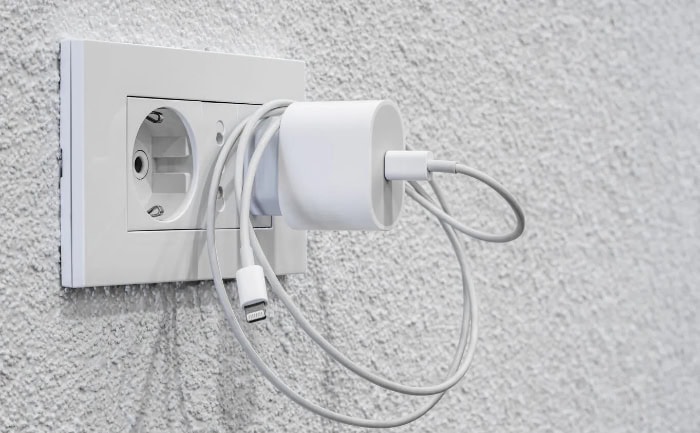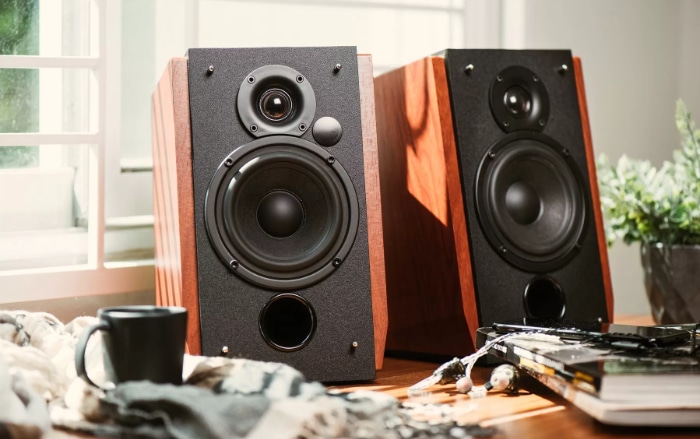Why Are Audiobooks So Expensive? Breaking Down the Cost

Audiobooks, over the years, have surged in popularity as a favored medium for consuming literature. This trend transcends boundaries, reaching global audiences who find appeal in the convenience and flexibility that audiobooks offer.
Yet, a stumbling block for many potential consumers remains the seemingly high cost of these products.
The Cost of Audiobook Production
Producing an audiobook involves a series of complex steps, each contributing to the overall cost. Understanding this process will provide clarity on why audiobooks may seem expensive compared to their print counterparts.
Stages in Audiobook Creation
The creation of an audiobook is far from a simple process. Here’s a step-by-step overview of what it entails:
Manuscript Preparation
Before recording can even begin, the manuscript needs to be thoroughly reviewed and prepared. This may involve adapting it for the spoken format and highlighting tricky pronunciations or dialect cues for the narrator.
Hiring Voice Actors or Narrators
A significant chunk of the production cost comes from hiring a professional narrator or voice actor. These individuals bring the text to life, their unique skills in tone modulation, pronunciation, and storytelling adding immense value to the final product.
Studio Recording and Production
The actual recording of the audiobook is a time-intensive process often carried out in professional recording studios. The cost of studio time, sound engineering, and technical support contribute to the overall expense.
Audio Editing and Mastering
After recording, the audio files undergo thorough editing to remove any errors, pauses, or unwanted sounds. The final mastering stage ensures a uniform sound quality throughout the audiobook. This technical process is usually carried out by skilled sound engineers, adding to the total production cost.
Comparing Production Costs: Audiobooks versus Traditional Books
Comparing the production costs of audiobooks and traditional print books can further illuminate the price difference. While the creation of a print book mainly involves writing, editing, design, and printing costs, an audiobook requires additional resources.
The aforementioned steps of hiring professional narrators, studio recording, and extensive audio editing significantly increase the production cost of audiobooks. Furthermore, each audiobook has a lengthy production timeline, often taking several weeks or even months to complete, which further justifies their higher price.
The Role of Narrators in Audiobook Pricing
The narrator plays a vital role in the production of an audiobook, often being the defining factor between a mundane and an immersive listening experience. But what impact do narrators have on the cost of an audiobook?
Choosing the Right Voice
The process of selecting the right narrator for an audiobook is more complex than one might imagine. It involves finding the right voice that can engage listeners, bring characters to life, and convey the appropriate tone of the book.
This requires a specific set of skills and experience, often translating into higher costs for top-tier narrators.
The Cost of Celebrity Narrators
When a famous personality or a celebrity is roped in to narrate an audiobook, the costs can skyrocket. Their name recognition and fan following can increase the audiobook’s appeal and potentially its sales.
However, their professional fees reflect their status, making celebrity-narrated audiobooks more expensive.
Case Study: The Impact of Narrator Status on Audiobook Pricing
Consider an audiobook narrated by a well-known actor compared to one narrated by a lesser-known voice artist. The book content may be identical, but the cost of hiring the actor will undoubtedly be significantly higher due to their celebrity status and perceived value addition.
This increased production cost is often passed on to the consumer, leading to a higher retail price for the celebrity-narrated audiobook.
The Influence of Publishers on Audiobook Pricing
Publishers play an often underestimated, yet crucial role in setting the final price of an audiobook. They bear the cost of production and orchestrate the journey from a manuscript to a finished audiobook, influencing its price in significant ways.
The Role of Publishers in Pricing
Publishers are the vital bridge between authors and readers (or listeners, in the case of audiobooks). They undertake the responsibility of transforming a manuscript into a sellable product, be it a printed book or an audiobook.
This process involves various costs including, but not limited to, editing, design, production, marketing, and distribution. Consequently, publishers have a significant say in determining the retail price of an audiobook, aiming to cover their expenses and generate a profit.
Licensing Agreements and Their Impact on Audiobook Prices
Publishers often enter into licensing agreements with authors and narrators, promising them a certain percentage of the sales revenue. In some cases, they might also need to negotiate rights with the original print book publisher to produce the audiobook version.
These costs can add up and are usually reflected in the final price of the audiobook.
Revenue Distribution: Where Does the Money Go?
The price of an audiobook is not just the cost of production. A percentage of each sale goes to the publisher, the author, the narrator, and other contributors based on contractual agreements.
These royalties can influence the final retail price as publishers aim to balance their expenses and compensate all parties involved.
Distribution Platforms and Audiobook Pricing

Distribution platforms form the final bridge between audiobook producers and consumers. These platforms host a multitude of titles, provide a streamlined listening experience, and significantly influence the final price of audiobooks.
An Overview of Popular Audiobook Platforms
Several digital platforms specialize in distributing audiobooks. Some of the most popular ones include Audible, Google Play Books, and Apple’s iTunes Store.
These platforms offer a range of titles across various genres and from multiple publishers. Their pricing models often include options for purchasing individual titles or subscribing to monthly plans for unlimited access.
The Role of Distribution Platforms in Price Setting
Distribution platforms also play a role in setting the final price of an audiobook. These platforms host the audiobooks, handle sales transactions, and provide customer support. For these services, they usually charge a commission on every sale or subscription, which can influence the retail price.
Furthermore, platforms may also negotiate specific pricing agreements with publishers, which can have a direct impact on the final cost of an audiobook. For instance, exclusive distribution rights can often command a higher price.
A Comparison of Prices Across Different Platforms
Pricing can vary across different distribution platforms. For example, a title available on Audible might be priced differently on Google Play Books due to different agreements with publishers, variations in operational costs, or differing pricing strategies.
The Impact of DRM on Audiobook Pricing
Digital Rights Management, or DRM, is a crucial element in the digital distribution of media, including audiobooks. It significantly influences the pricing structure of audiobooks, warranting a detailed discussion.
Demystifying DRM: What is it?
DRM is a set of access control technologies used by publishers and copyright holders to limit the use, modification, and distribution of copyrighted works. In the context of audiobooks, DRM technology prevents unauthorized sharing, copying, or altering of the original file, thereby protecting the interests of authors, narrators, and publishers.
The Impact of DRM on Audiobook Pricing
Implementing DRM comes at a cost. The technology itself, along with the infrastructure necessary to support it, adds to the operational expenses of publishers and distribution platforms.
Consequently, the cost of DRM can influence the final price of an audiobook, making it more expensive.
Additionally, DRM might indirectly impact pricing by shaping market dynamics. By preventing unauthorized sharing or copying, DRM ensures that each listener needs to purchase their own copy or access it through legal means (e.g., library loans or subscription services), potentially leading to more sales and allowing publishers to maintain higher prices.
Are Audiobooks Worth Their Price?
While it’s evident that a multitude of factors contribute to the pricing of audiobooks, a critical question remains: Do consumers find value in the price they pay for audiobooks?
The Perceived Value of Audiobooks
Audiobooks offer unique advantages over traditional print books and e-books, enhancing their perceived value. They provide a convenient and hands-free reading experience, making it possible to “read” while driving, cooking, or exercising.
For many, the immersive experience that a well-narrated audiobook offers is well worth the price.
The Benefits of Audiobooks
The value proposition of audiobooks extends beyond mere convenience. They offer accessibility, catering to those who may struggle with traditional reading due to visual impairment, dyslexia, or other learning differences.
Furthermore, for non-native speakers of a language, audiobooks can be a valuable tool for language learning, helping improve listening skills and pronunciation.
Listener Perspectives on Audiobook Pricing
Different listeners have varying opinions on the worth of audiobooks. Some argue that the high-quality production, the convenience, and the unique listening experience that audiobooks offer justify their price.
Others may feel that the costs are too steep, especially when compared to other forms of entertainment.
Ultimately, the worth of an audiobook is subjective and depends on individual preferences, needs, and financial means.
Some may find the price justified given the unique benefits audiobooks offer, while others may lean towards more affordable reading formats.
Conclusion
As we navigate the winding journey from a book’s manuscript to its final audiobook version, it becomes clear that numerous elements contribute to the overall cost. From the meticulous process of audiobook production, involving manuscript preparation, hiring talented narrators, and sophisticated audio editing, to the influence of publishers and their often complex licensing agreements, the high cost of audiobooks begins to make sense.
Add to this the critical role of distribution platforms, their operational costs, and the influence of DRM, and we start to see the big picture. Every stage, every decision, has a financial implication that ultimately shapes the final price of the audiobook.
But is the price worth it? For many, the convenience, accessibility, and unique experience that audiobooks offer certainly seem to justify their cost. Yet, perspectives vary, and what one person might deem valuable, another might regard as extravagant.
The journey to understanding why audiobooks are expensive may not lead to uniform agreement on their value. Yet, it undeniably provides a deeper appreciation for the process behind the creation and distribution of these immersive literary experiences.


